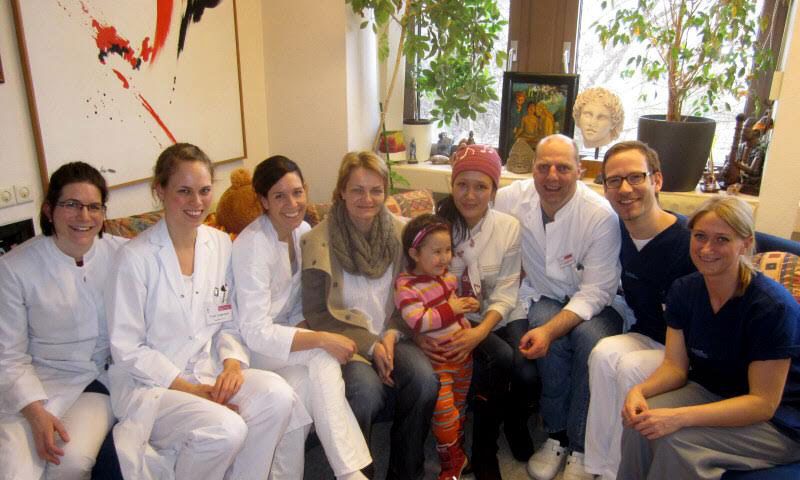Emergency medical help
Emergency medical aid for families and children

Uplift’s Emergency Medical Aid Program is closely connected to our other work. In particular, it is linked to the Uplift Mothers program and the Prevention of Child Abandonment program, which works to prevent children from ending up in children’s homes.
It is often the case that a newborn will need urgent surgery and that the parents won’t have the financial means for this. In such cases, the distressed parents often end up bringing their child to a children’s home. They mistakenly believe that the child will be better off in the home and that the state will pay for necessary medical treatment. This is generally not the case. Uplift provides emotional and financial support to families facing such difficult circumstances. We cover the costs of medications or necessary but expensive special food. We also pay for equipment, transport to hospital or other necessary items for the child’s treatment, which the family cannot afford.
For children in homes who need special medical treatment, Uplift finances medications and ensures that the child is accompanied to the hospital by a trusted person.
Working with partners to provide cleft lip and cleft palate surgery in Kyrgyzstan
For over 10 years, we have been working with the German – Swiss Foundation "Zuversicht für Kinder" to make cleft lip and cleft palate surgery possible for children in our Prevention of Child Abandonment program. When we started our work in Kyrgyzstan’s children’s homes, we met many children whose cleft palate had not been treated and who could barely make themselves understood. Thanks to our successful collaboration with our partners, such cases are now very rare. Children living in homes in Kyrgyzstan now undergo early surgery, and thus have a real chance of being adopted.
In particularly severe cases, Uplift also organizes surgery abroad
Sometimes, there are particularly severe individual cases, which cannot be treated in Kyrgyzstan. An example of this is the small Aibike. She lost her nose in an accident and, thanks to Interplast, was two times treated in Germany. Now she is preparing for her third operation. We are grateful to Dr. Borsche and his team for their incredible work.
Emergency medical aid in figures:
Project start: January 2009
Total: more than 900 families since the beginning of the project
Copyright © 2022 uplift-aufwind. All Rights Reserved.